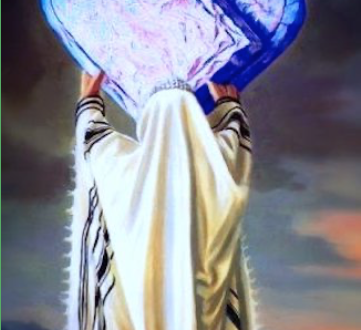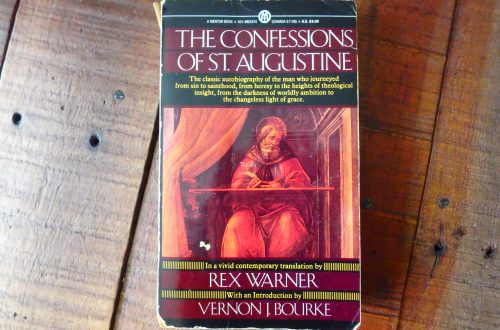The Lifetime Wilderness
Leadership is broken because leaders are unbroken
Wilderness Wanderings Series:
Learning to Live the Zigzag Life
Rumors were flying. Reports were circulating. Terror was rising. Babylon was marching. The world was changing. Confusion reigned. Waves of hope crested and crashed with each new report…
The hope was that Egypt, Judah’s great alley and protector, would rescue the country. Then came bad news—Egypt was defeated by Babylon. Then came good news. Nabopolassar, Nebuchadnezzar’s father, the king of Babylon, died, and the prince rushed back to the capital of his empire to be crowned king. Maybe with the press of his new responsibilities, he would forget about Jerusalem. But no, he returned, determined to make conquering Judah his first success as king.
But what about the royal family and the nobility of Jerusalem, those who always paid the highest price when a foreign conqueror took control? Babylon’s reputation was well established.
They knew that death and destruction rode with Nebuchadnezzar, that this terrible evil king would come upon their city and their lives and, most of all, upon their families. They knew that Nebuchadnezzar, the horrible idolatrous ruler (his name meant Nabu—the god of Babylon—is my protector) would carry off their daughters for his harem and their sons to be his slaves. What terrible dread they must have felt as they awaited their inevitable fate.
Adolescents in Exile
The year was 605 BC and the armies of Nebuchadnezzar marched into Jerusalem, the first of three waves that would engulf the city. This first time they ransacked the temple and took the cream of the Jewish noble families into captivity. The next two times they would take more captives and then finally destroy the temple and devastate the city in their final conquest of Judah.
All the fears of the noble families came true: their sons and daughters were taken into captivity forever. What anguish must have filled their souls, what awful pain must have broken their hearts. Their precious children were gone, led out of Jerusalem into the abyss of idolatry and evil.
Among the exiles were four young men, adolescents really, sixteen-year olds, sons of the Jerusalem elite: Daniel, Hananiah, Mishael, and Azariah, who, on that awful day when they were forcefully separated from their families, marched into the lifetime wilderness.
They would never see their parents again, they would never enter Jerusalem again, they would never worship in the temple again. They would be forced to learn a new language, adapt to a new culture, conform to new values, create a new identity, make overwhelming decisions, face life-threatening demands—for the rest of their lives.
They truly entered the lifetime wilderness.
Their hearts must have been heavy as they trudged across the Fertile Crescent from Jerusalem to Babylon and, with every step, moved further from the security they had always known to the uncertainty they could not know. While he knew what he was losing, Daniel could not know the opportunities he was gaining.
He could not know that he would rise to become the number two man in both the Babylonian and Medo-Persian empires, two of the greatest empires in history. He could not know that he would grow closer to God than anyone could ever imagine. He could not know that he would advise kings and tell them their fate, and, through that, gain their greatest confidence and favor. He could not know the opposition and danger he would face nor the amazing ways God would protect him. He could not know that he would see into the future of the world and describe empires to come and God’s plan for the ages. He could not know that he would write a book that someday would be part of the very holy scrolls of God’s word that he so valued and he would become a peer with Moses.
It’s true that the desecration of Solomon’s temple and the devastation of his family catapulted Daniel into the lifetime wilderness, but the lifetime wilderness in the hand of God gave Daniel opportunities no man could ever dream of or hope to attain.
His greatness grew out of his lifetime wilderness. Could the same be true of us?
Called to a Lifetime Wilderness
Some people are called to a lifetime wilderness. Those who are born with debilitating distorting physical limitations, who long to be normal, but never can be. Those who live in places of persecution such as East Asia, the Middle East, and other parts of the world, who long for peace and security but who see only the daily threat of arrest, torture, and even death. Those who are minorities hated for the color of their skin or their tribe or the language they speak. Many are thrown into jail for years. Their lives are constantly threatened as they are physically beaten for their convictions, tortured in unmentionable ways for their faith in Jesus.
Some in Eastern Europe, for instance, have spent half their lifetime in the wilderness of political injustice and personal bondage under Communism, as children required to do forced labor for the good of their society or made to stand in line to get food for their families, having to fight adults for their position. Their parents and their grandparents before them knew the lifetime wilderness well and modeled the way for them to survive by God’s grace.
Upon their arrival in Babylon, the three young men had to make one of the hardest decisions anyone must ever make. At a time in life when adolescents want to belong, to conform to the crowd around them, they had to choose between fitting in or ultimately losing their lives. They faced far more than social pressure, they faced the king’s edict: eat his way, learn his culture, become his men. But they had another King, one whose ways conflicted directly with their conqueror’s demands. What should they do?
Make up Your Heart
Daniel went deep into his very being to make his decision, deeper into himself than he had ever gone before, right into his very essence, into his heart, and determined that no matter what it cost him, even his very life, he would serve his greater King. For all of his power and all of his wealth and all of his glory, Nebuchadnezzar was the lesser king to Daniel. No ruler compared with Yahweh, the King of his life.
As Daniel tells us, he resolved not to defile himself with the royal food and wine. What Daniel did was set his heart, determine in his heart, that he would obey King Yahweh alone, no matter what Nebuchadnezzar might do to him. As we make up our minds, so Daniel made up his heart. Daniel went down into his heart, as far down into himself as he could, to evaluate his options. He had to consider what his choices were, what his risk was, what the results of his decision might be.
His parents were far away in Jerusalem. He would never see them again and they would never know the choice he made, but all that they taught him now gripped his heart. Daniel determined with an unshakeable conviction that he would honor Yahweh and not Nebuchadnezzar.
This decision, as irrational as it was in light of the dangers Daniel faced, was the one thing that led to his opportunities and lifted him to the heights of position and power, even though he faced envy and jealousy all his life. He never deviated from this decision made when he was sixteen years old, not even when he entered his eighties and was thrown into the lion’s den.
Daniel prospered in the lifetime wilderness because of an adolescent decision to trust God no matter what it meant for him.
A Lifetime Wilderness Means Lifetime Opportunities
So how do you endure a lifetime wilderness and grow to be a healthy human being?
By doing what Daniel did, by going deep into your self, deep into the core of your heart and deciding that you will never under any circumstances accept your culture’s estimate of you or live according to the identity your culture assigns to you. At your core there must be a conviction and a commitment that is more important than life itself.
Your culture will tell you that you should be angry, that you have a right to be bitter, that anyone in your situation has to be resentful. Don’t eat the meat or drink the wine of your culture. Build your life on the foundation of a radical commitment to Jesus as Lord; trust Him for your thoughts, your emotions, your decisions, and your actions.
Dare to be a Daniel. With this foundation in place, you can find the other resources you need to be healthy, productive, and effective. Without this commitment, you will never last in the lifetime wilderness nor will you ever fulfill the opportunities that your lifetime struggles bring to you.
Do not look at the hurt of your wilderness, look for the opportunities that lie all around you. Do not be paralyzed by the pain you feel or the memories that plague you. Instead, look for God’s opportunities for you and turn your lifetime wilderness into an oasis of great glory for God.
From "The Lifetime Wilderness" on www.leaderformation.org/blog
 About: The Broken Leadership Blog is about changing the leadership conversation from what we are doing with our hands to what God is doing through our hearts.
About: The Broken Leadership Blog is about changing the leadership conversation from what we are doing with our hands to what God is doing through our hearts.






